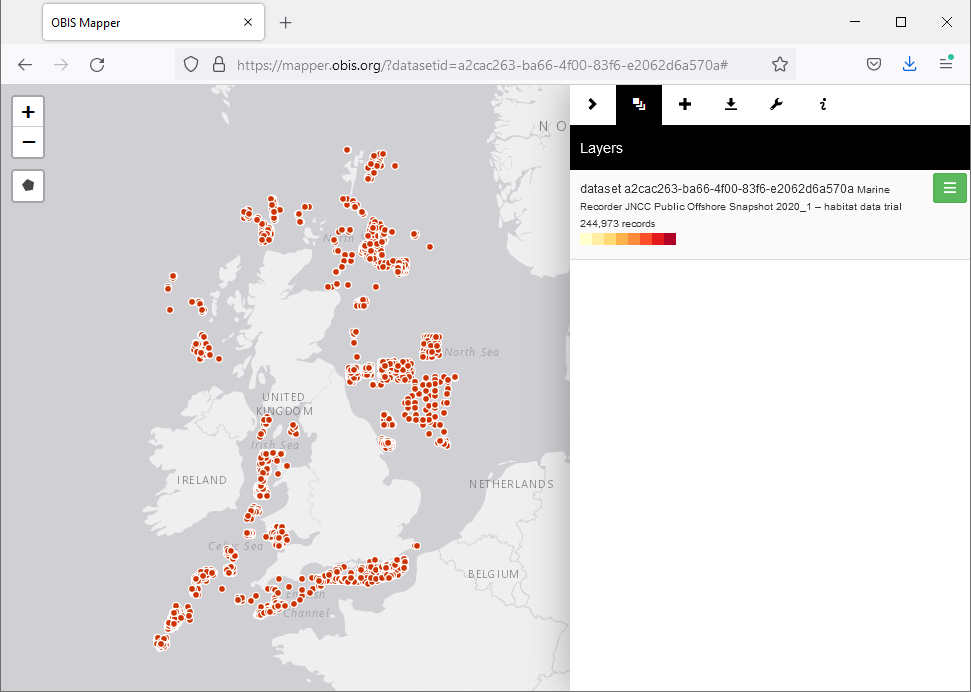Challenges
There is a demonstrable need to provide access to combined species and habitat data and ensure low-friction aggregation at the larger spatial scales. Developments in the biodiversity standards underpinning EMODnet Biology have enabled the inclusion of benthic habitat data alongside species occurrence data.
Leveraging developments to include additional “measurements and facts” within the Darwin Core Archive standard for biodiversity data exchange meant that the EMODnet Seabed Habitats and Biology teams could develop guidance and current best practice to support other organisations and individuals wishing to publish habitat and species biodiversity data together. The recommended approach is now featured in the manual for the global OBIS and the next step is for it to be discussed, developed and implemented at the global level.
A full report of the approach, methodology and outcomes has been prepared and is available via EMODnet Seabed Habitats.
Benefits of using the EMODnet infrastructure
The infrastructure of both EMODnet Seabed Habitats and Biology partners, specifically JNCC and the Marine Biological Association, alongside the EMODnet Biology data infrastructure, managed by VLIZ, enabled this innovation to occur.
The publishing tools and platforms ensured standards’ compliance and deliver cost-savings through the reduction in effort needed to aggregate data in non-standard formats. Following this work, significant volumes (385 surveys, comprising of a quarter of a million occurrence records) of new data will be accessible via EMODnet and global data aggregators.
Richer dataset publication
By piloting the approach and developing a tested methodology, EMODnet experts provided clear examples for others to follow. Such guidance will mean holistic biodiversity data can be rapidly progressed to European and global data aggregators, facilitating richer dataset publication and ensuring the greatest volume of high-quality species and habitat data are available for reporting, assessments and informed decision making.
Services
Marine Recorder JNCC Public Offshore Snapshot 2020_1:
Related documents
Guidance on submitting habitat point data to EurOBIS
Media

